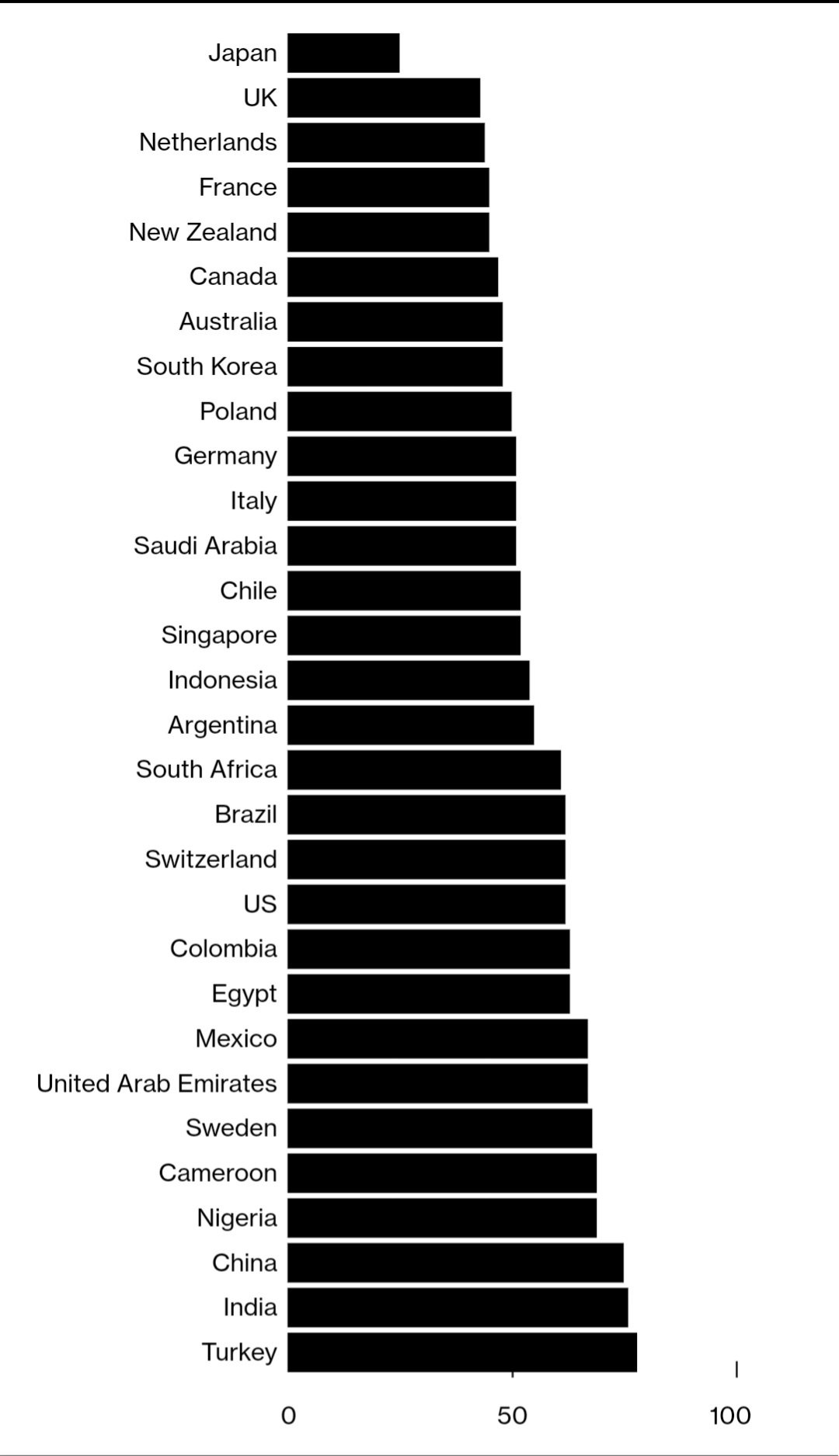this post was submitted on 03 Nov 2023
103 points (84.6% liked)
World News
32288 readers
960 users here now
News from around the world!
Rules:
-
Please only post links to actual news sources, no tabloid sites, etc
-
No NSFW content
-
No hate speech, bigotry, propaganda, etc
founded 5 years ago
MODERATORS
you are viewing a single comment's thread
view the rest of the comments
view the rest of the comments
Behind the Bloomberg paywall:
Japan came in last in a global ranking of employees’ well being, measured by assessing physical, mental, social and spiritual health, the results of a survey conducted by McKinsey Health Institute showed. The island nation scored 25% in the poll of more than 30,000 workers across 30 countries, according to the study released on Thursday. Turkey was highest at 78%, followed by 76% for India and 75% for China. The global average was 57%.
(Graph in the article had no axis labels 🤷♀️)
Although Japanese businesses have built a reputation for offering lifetime employment and job security, it also means employees can find it hard to change jobs if they aren’t happy. Japan consistently has had low ratings in international surveys and the results reflect it, according to Rochelle Kopp, who advises companies on cross-cultural communications and business practices.
“There’s this documented tendency to rate yourself low,” said Kopp, who is also a board member of MS&AD Insurance Group Holdings Inc.“There are significant issues in Japan with lack of satisfaction in the workplace, with significant levels of stress.” At the same time, an increasing number of Japanese workers are on short-term contracts, fueling uncertainty, she added.
According to the McKinsey survey, employees who had positive work experiences reported better holistic health, are more innovative at work and show higher job performance.
“For most adults, the majority of waking daily life is spent at work,” the report’s authors wrote. “That offers employers an opportunity to influence their employees’ physical, mental, social, and spiritual health.”
Full McKinsey study here